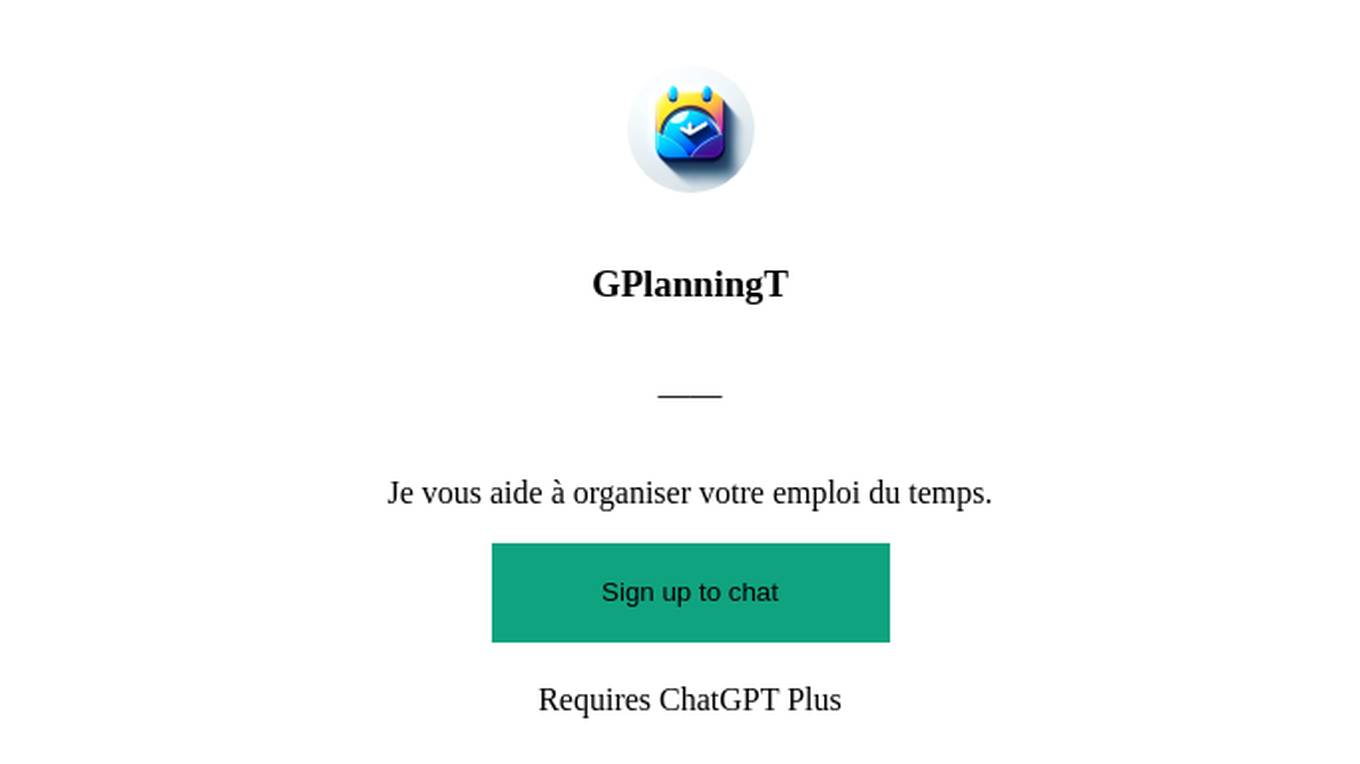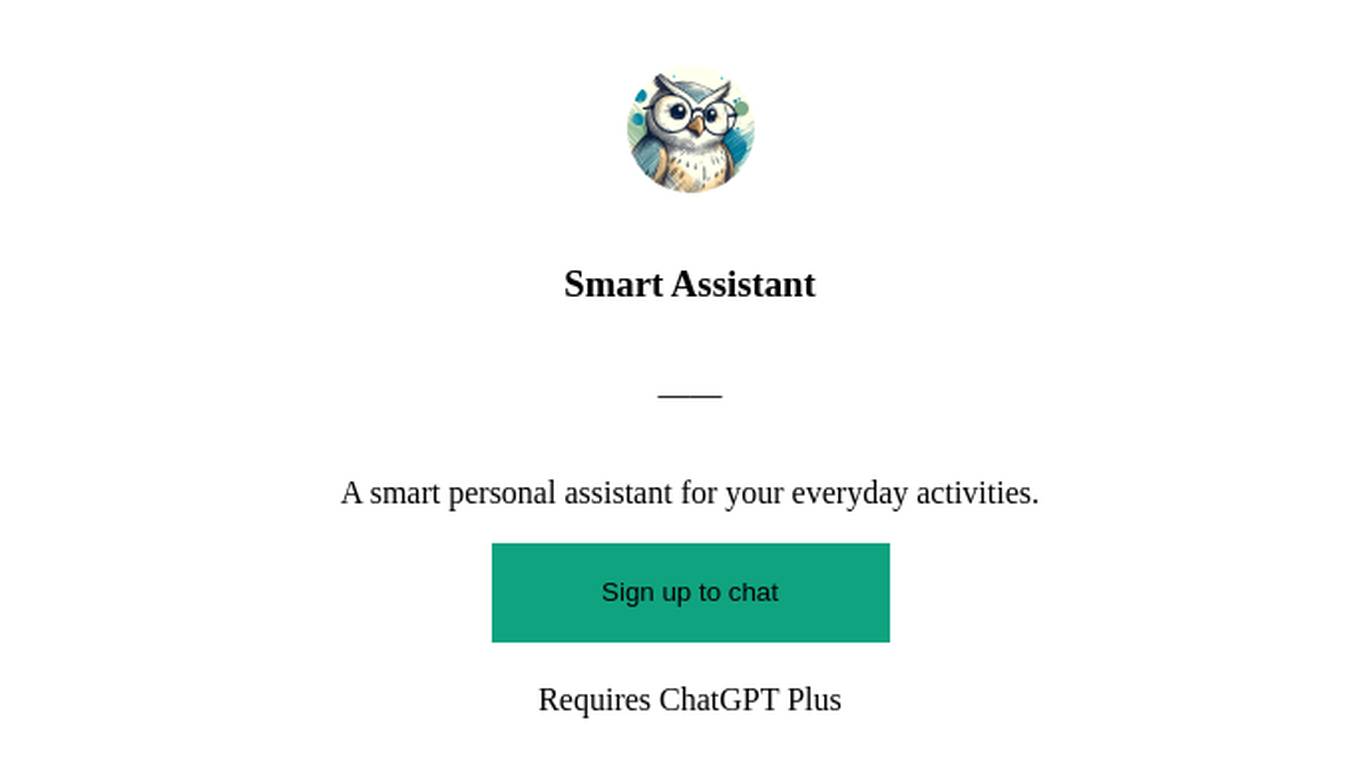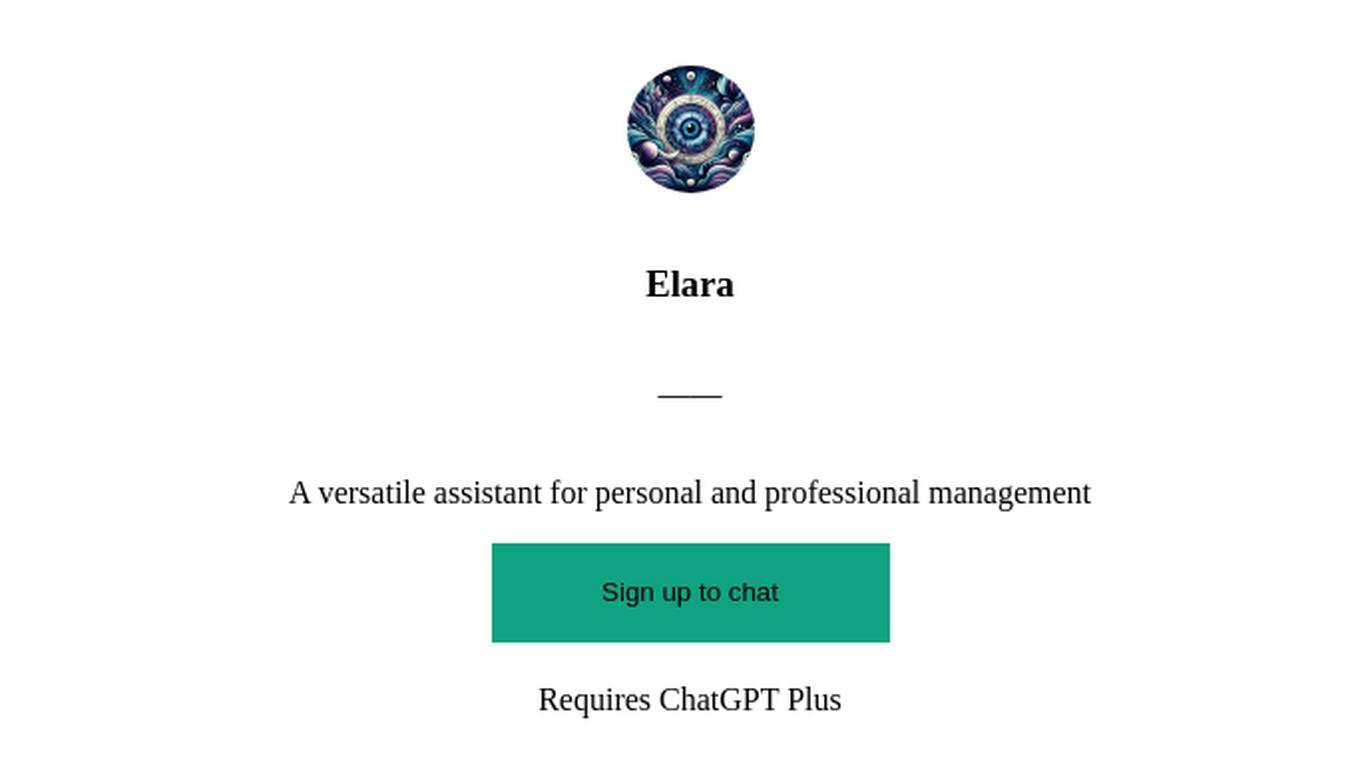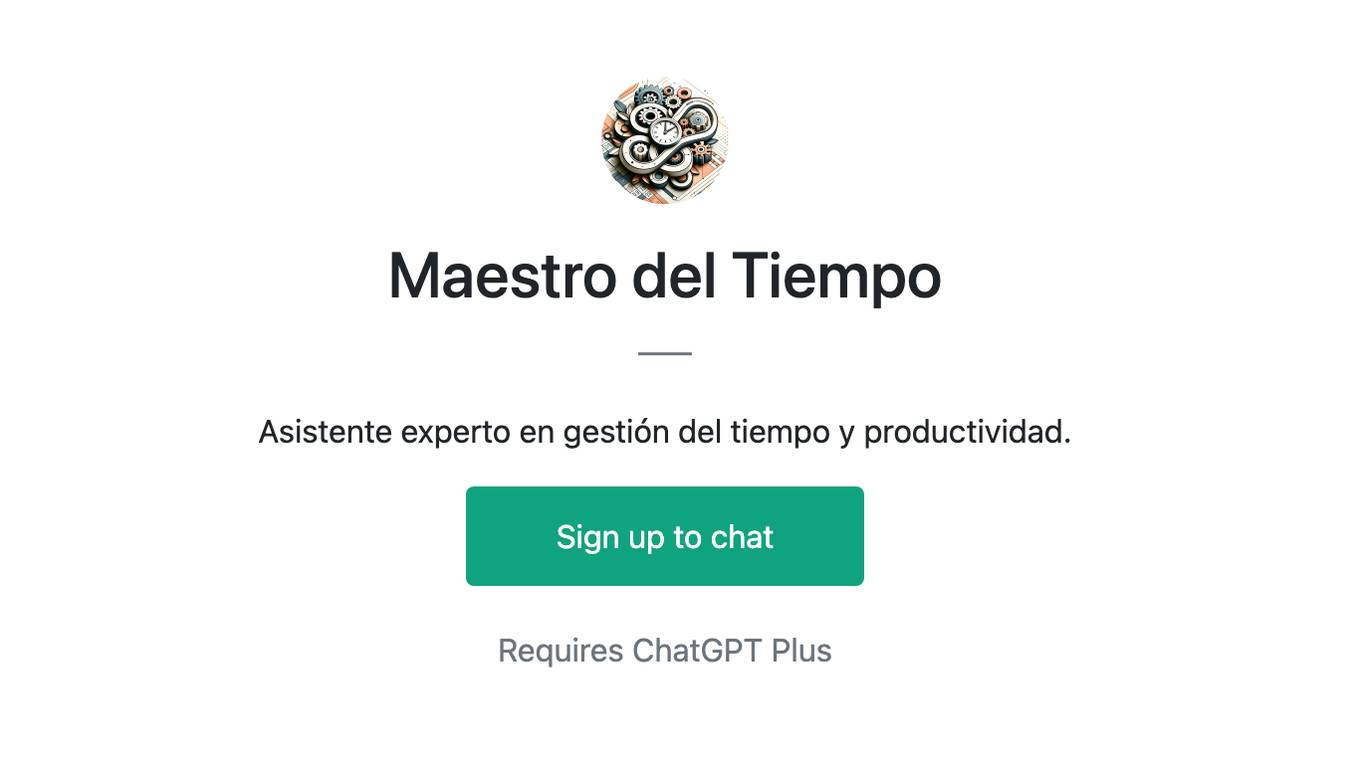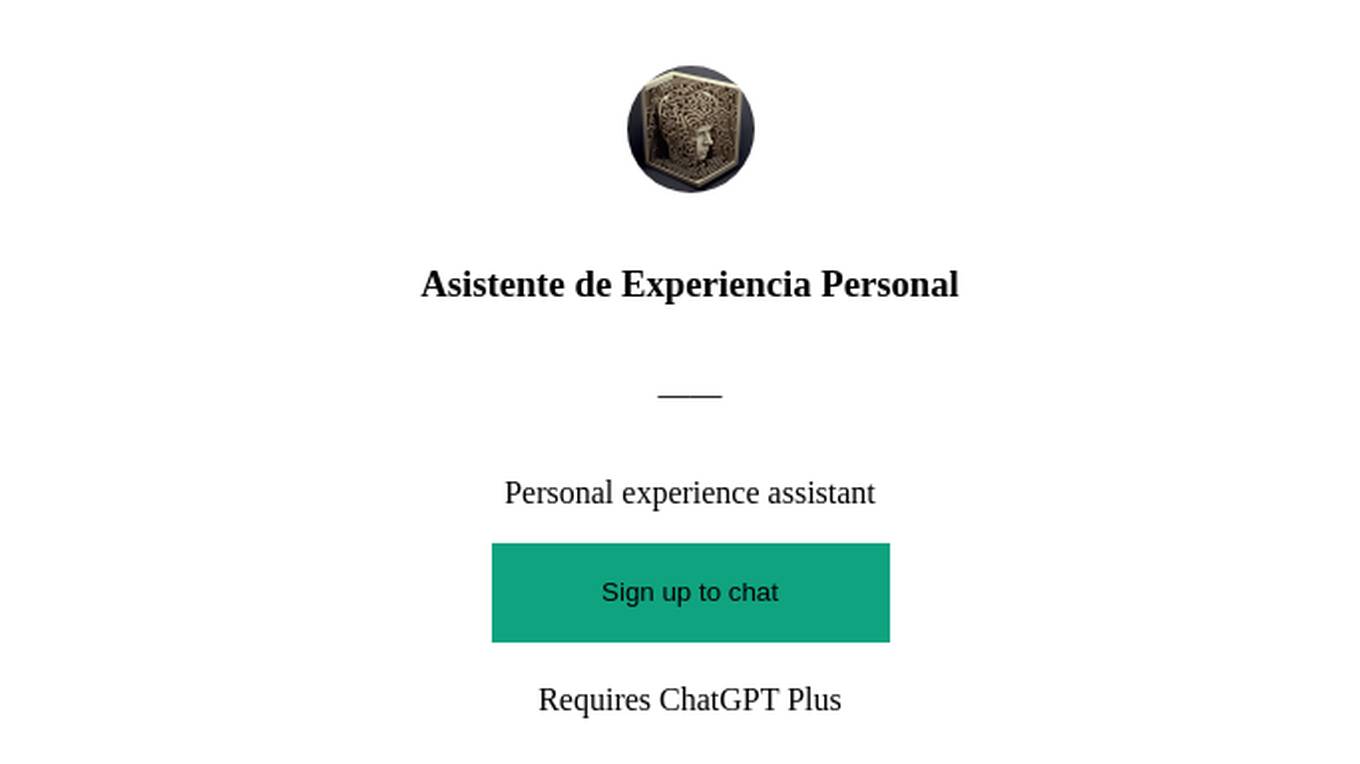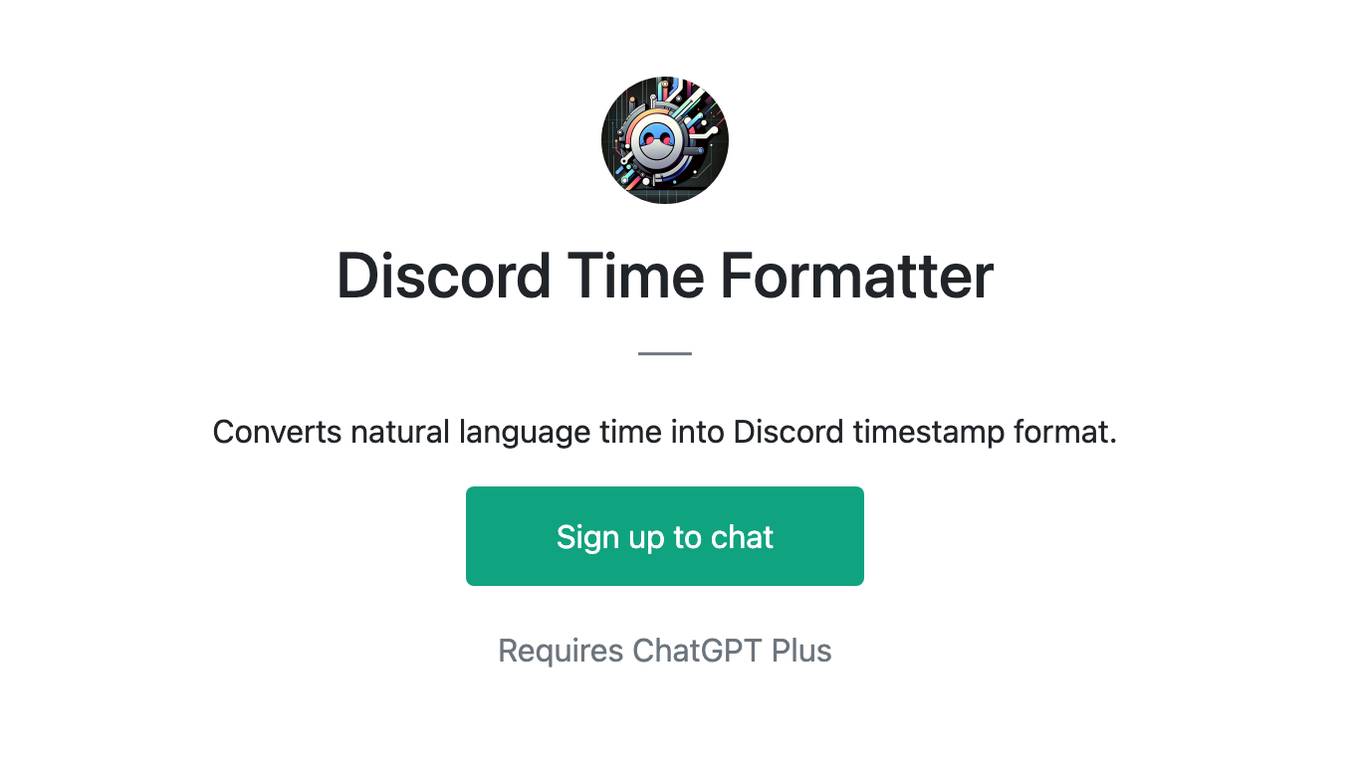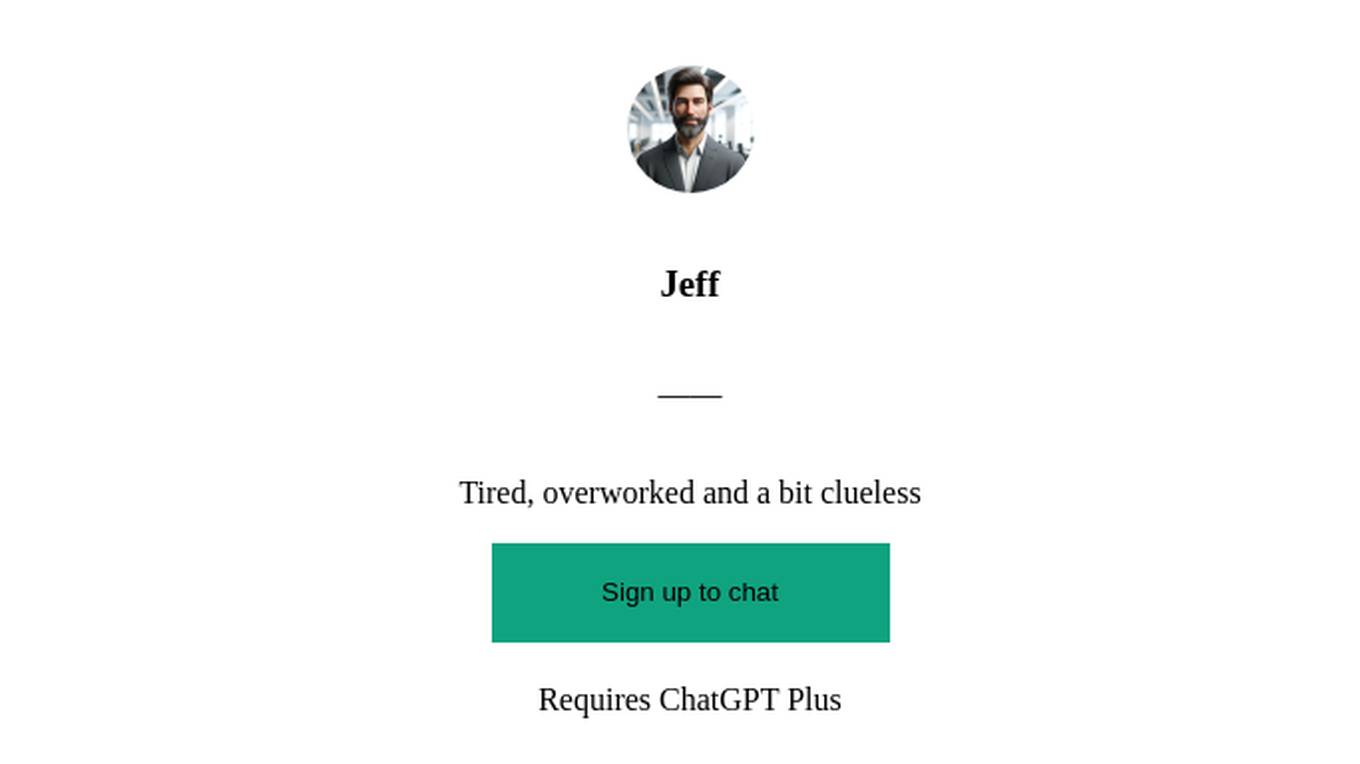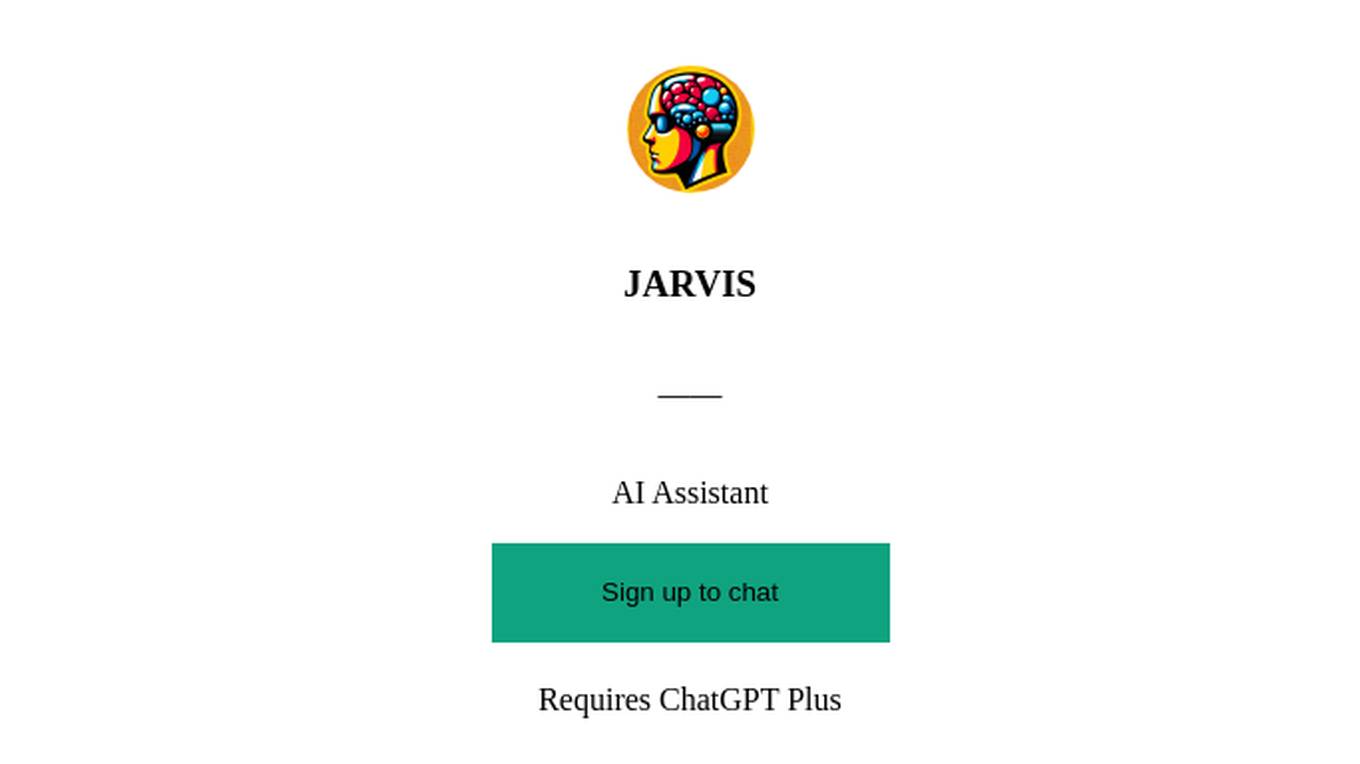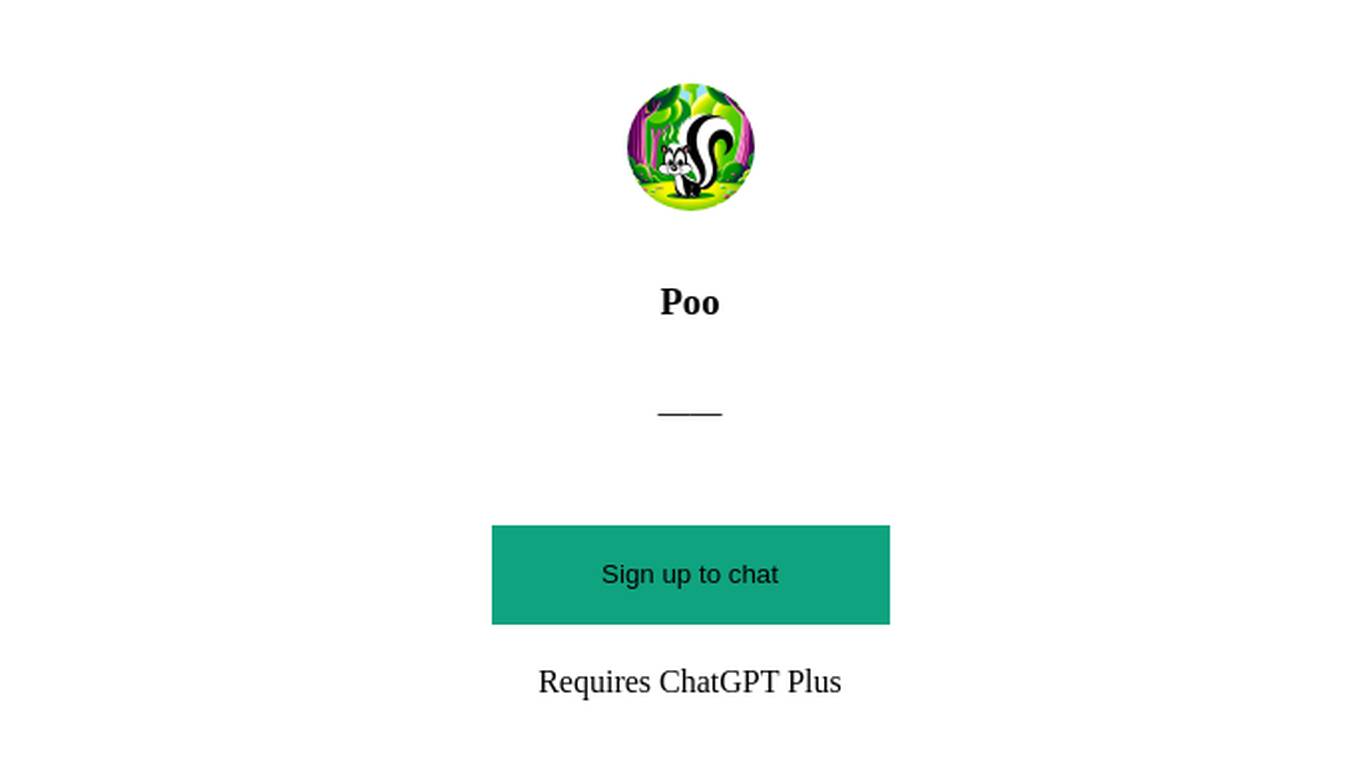Best AI tools for< Set Schedules >
20 - AI tool Sites

Agenda Hero
Agenda Hero is an AI-powered tool that allows users to instantly convert text or images into structured and shareable schedules, calendars, and event plans. Users can easily create detailed schedules for various activities such as basketball team practices, offsite agendas, marketing events calendars, book club meetings, musical theater schedules, family calendars, trip itineraries, and more. The tool automates the process of generating ideas and reminders, making it convenient for users to organize their daily tasks and events efficiently.

Dola
Dola is an AI calendar assistant that helps users schedule their lives efficiently and save time. It allows users to set reminders, make calendar events, and manage tasks through natural language communication. Dola works with voice messages, text messages, and images, making it a versatile and user-friendly tool. With features like smarter scheduling, daily weather reports, faster search, and seamless integration with popular calendar apps, Dola aims to simplify task and time management for its users. The application has received positive feedback for its accuracy, ease of use, and ability to sync across multiple devices.
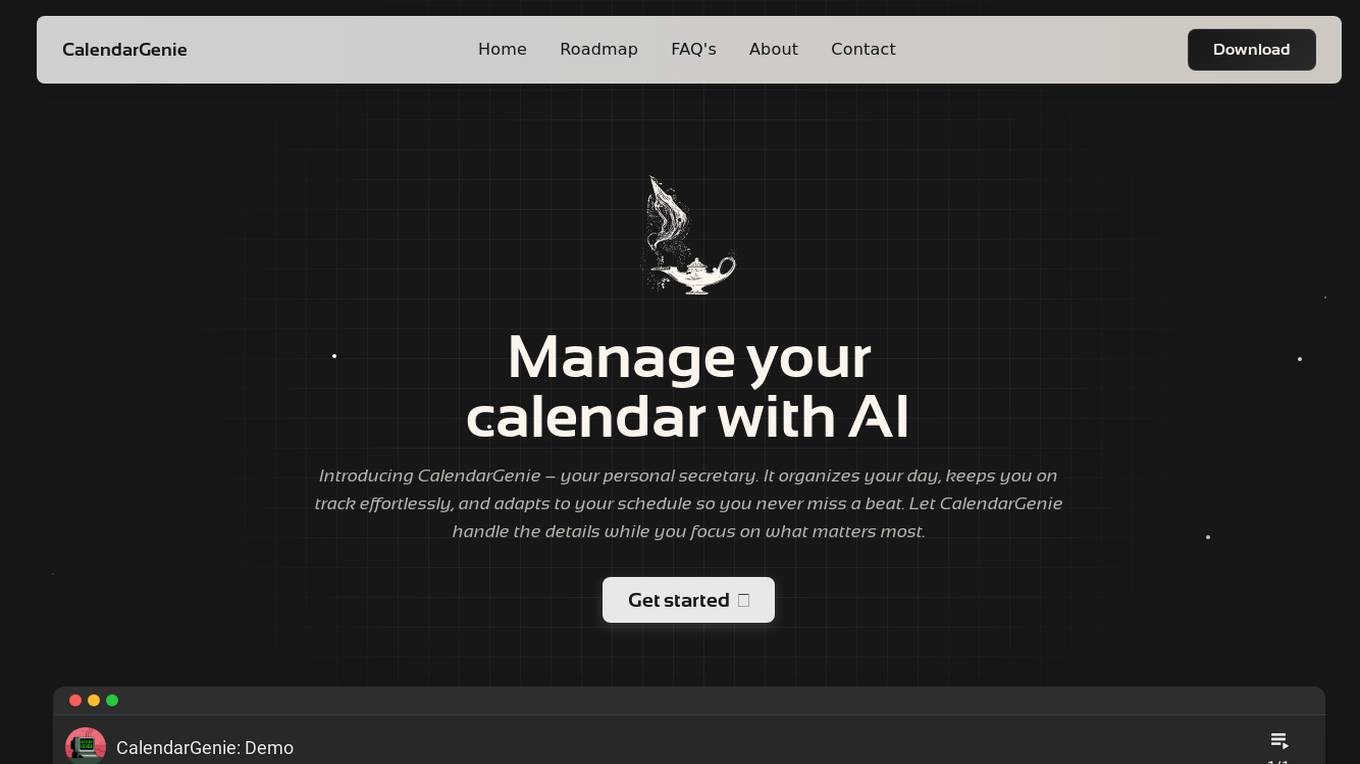
CalendarGenie
CalendarGenie is an AI calendar assistant designed to help users manage their schedules efficiently. It acts as a personal secretary, organizing daily tasks, keeping users on track, and adapting to their unique routines. With features like seamless scheduling, easy schedule modification, and event cancellation, CalendarGenie aims to simplify time management and prioritize what truly matters to users.
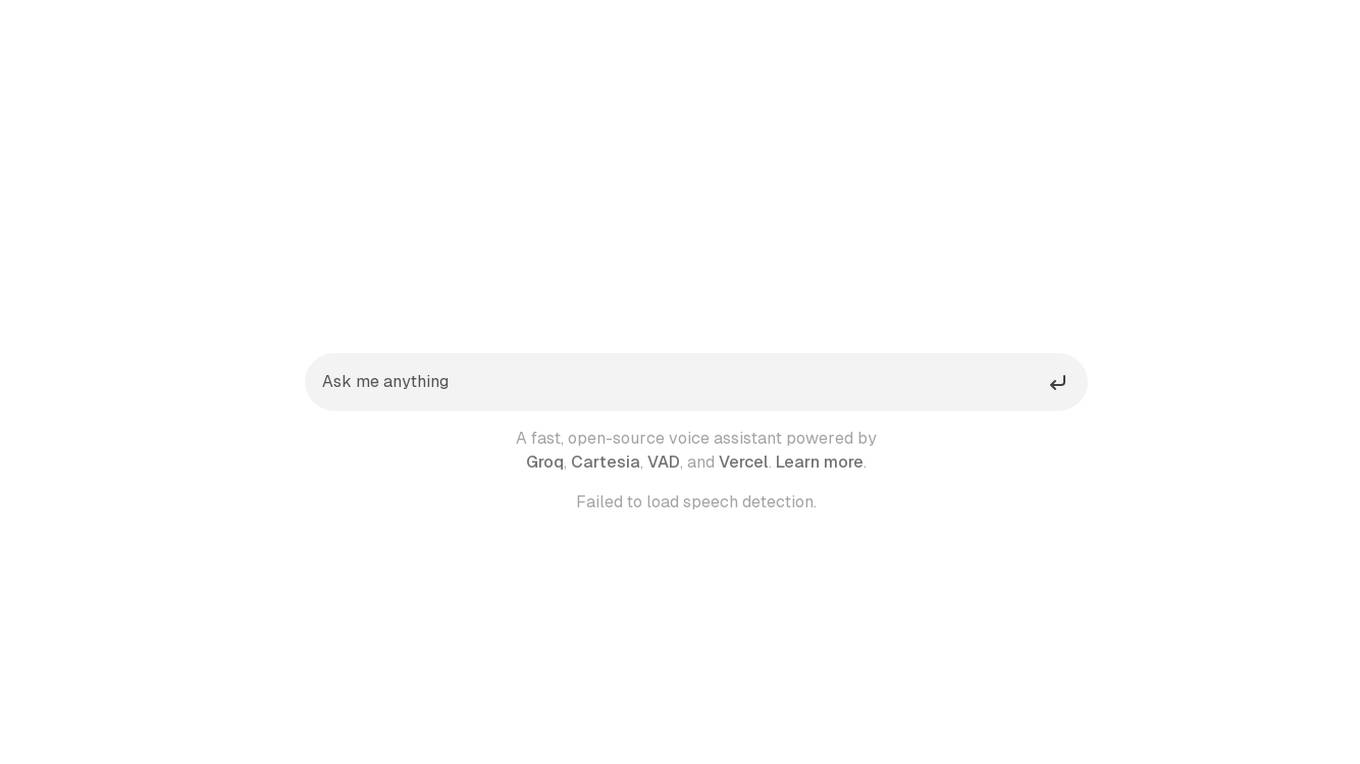
Swift
Swift is an AI-powered voice assistant that utilizes cutting-edge technologies such as Groq, Cartesia, VAD, and Vercel to provide users with a fast and efficient voice interaction experience. With Swift, users can perform various tasks using voice commands, making it a versatile tool for hands-free operation in different settings. The application aims to streamline daily tasks and enhance user productivity through seamless voice recognition capabilities.
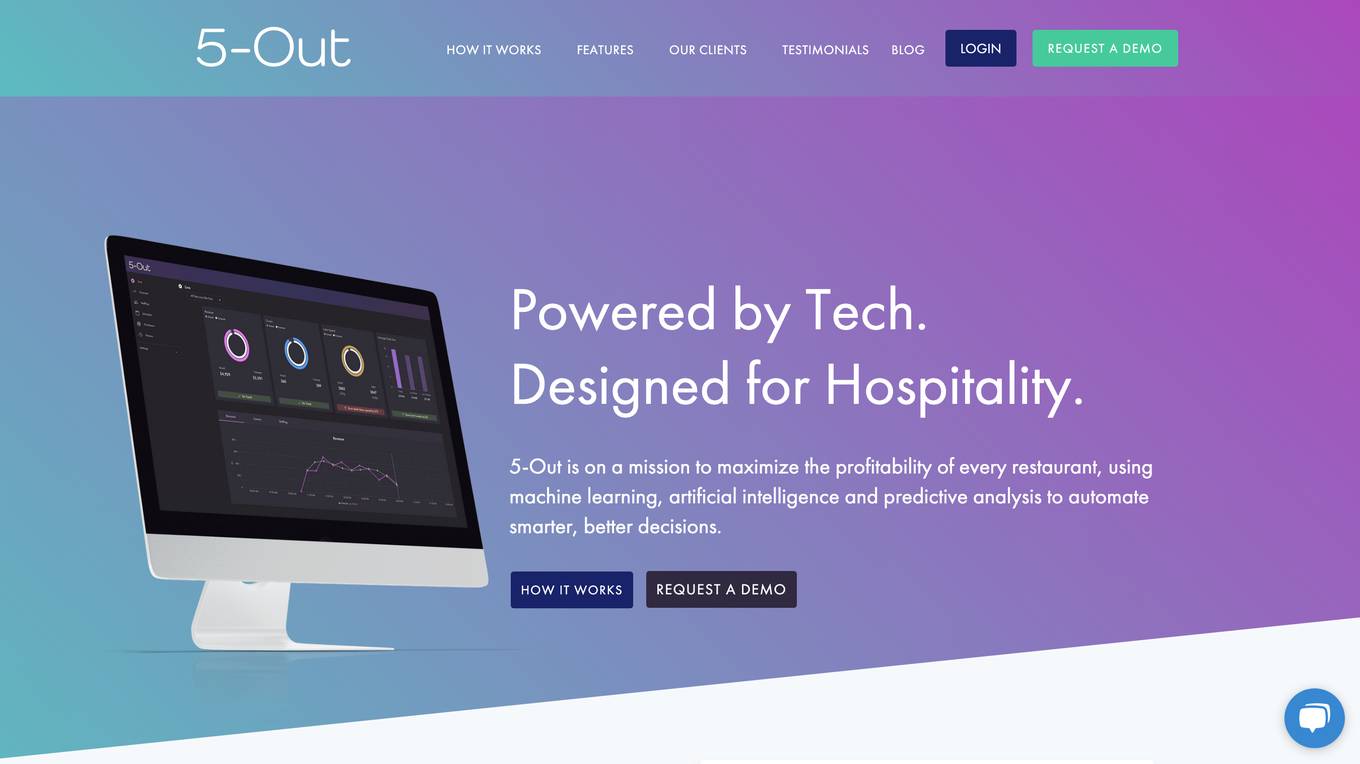
5-Out
5-Out is an AI Restaurant Forecasting Software designed to boost profit for restaurants. It utilizes predictive analytics, machine learning, and artificial intelligence to automate smarter decisions. By integrating various systems like Point of Sale, labor scheduling, purchasing, and inventory, 5-Out predicts sales and provides real-time recommendations to optimize labor and purchasing. The application helps restaurants set goals, improve bottom lines, and make more confident decisions based on accurate projections.

Pallie
Pallie is an AI assistant designed to help users with various tasks and activities. It utilizes artificial intelligence technology to provide personalized assistance and support in everyday life. From managing schedules to answering queries, Pallie aims to streamline and simplify daily routines. With its intuitive interface and advanced algorithms, Pallie offers a seamless user experience that adapts to individual preferences and needs.
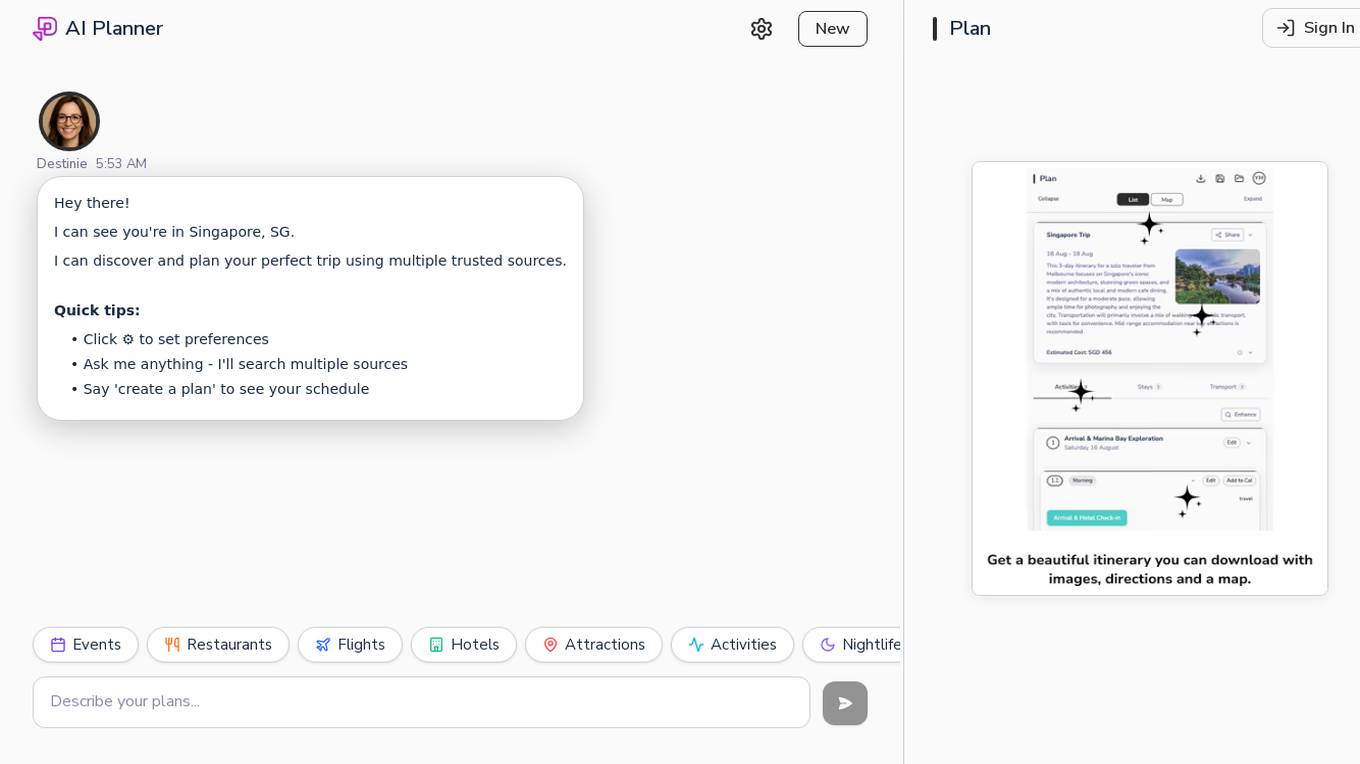
AI Planner
AI Planner is an advanced AI tool designed to assist users in planning and organizing tasks efficiently. It leverages artificial intelligence algorithms to provide personalized planning solutions. The tool simplifies the process of creating schedules, setting reminders, and managing deadlines. With its intuitive interface, users can easily prioritize tasks and optimize their productivity. AI Planner is a reliable companion for individuals seeking to streamline their daily routines and enhance time management skills.
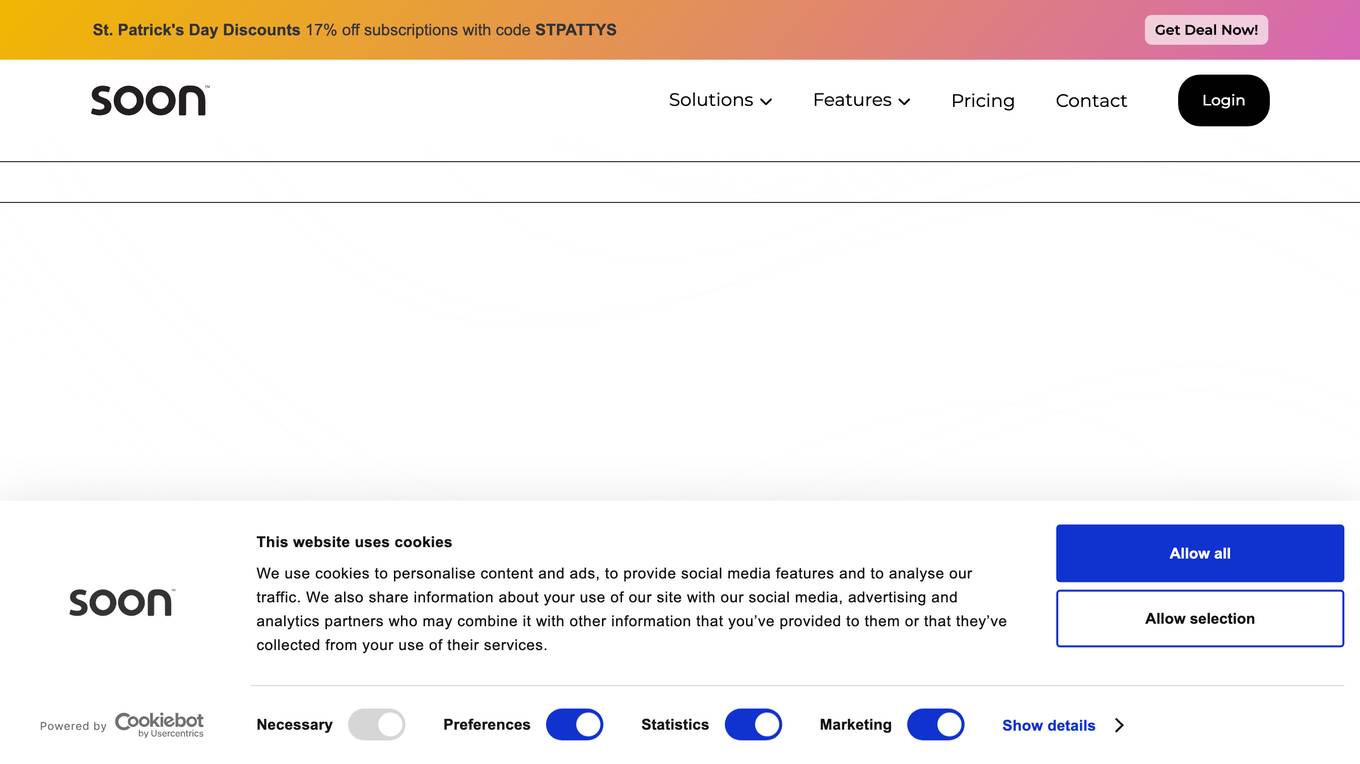
Soon
Soon is a fully automated crypto investing platform that makes it easy for anyone to invest in crypto, regardless of their experience level. With Soon, you can set up simple buying and selling schedules, automatically reinvest your profits, and even track your capital gains taxes. Soon also provides a robust set of investing features, such as auto-pilot selling, reimburse spending, and stop loss, to give you powerful tools in a simple, intuitive app.
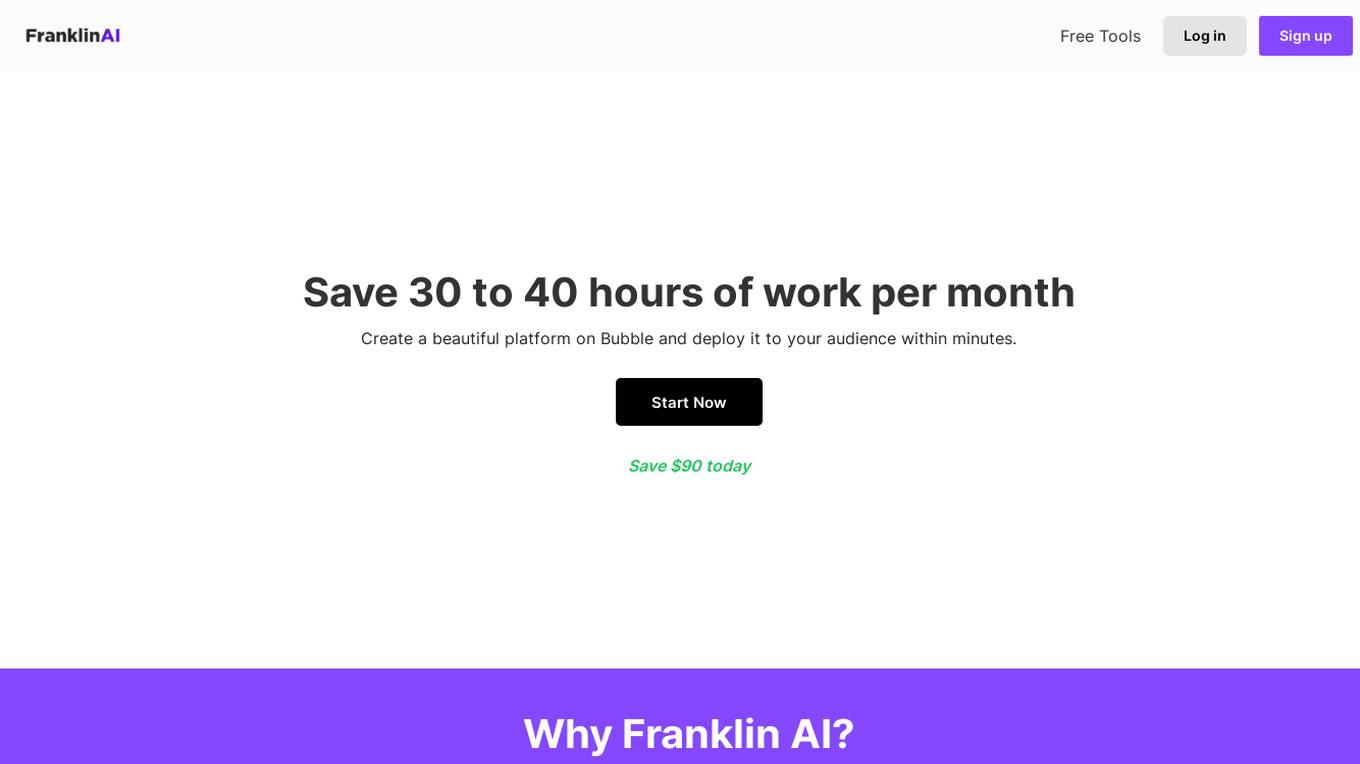
Franklin AI
Franklin AI is a personal AI assistant designed specifically for entrepreneurs. It provides a wide range of features to help entrepreneurs manage their tasks, organize their schedules, and streamline their workflow. With Franklin AI, entrepreneurs can easily access important information, set reminders, and receive personalized recommendations to enhance their productivity and decision-making process. The application aims to simplify the daily operations of entrepreneurs by leveraging artificial intelligence technology.

Me.bot
Me.bot is an AI-powered inspiring companion application that helps users break limits and get inspired in various aspects of their lives. It adapts to each user, providing proactive advice and personal models using frontier AI technology. Me.bot prioritizes privacy by protecting and segregating user data with the highest standards. The application offers features such as dumping and organizing anything, discovering life shapes and unexpected inspirations, saving life moments, generating inspiration, assisting with schedules, and summarizing key points. Me.bot also includes a set of privacy technologies called Me.Dome, ensuring complete anonymity, end-to-end encryption, data fortress, and confidential computing. Trusted by users worldwide, Me.bot is a versatile tool for mindfulness, organization, productivity, and personal assistance.
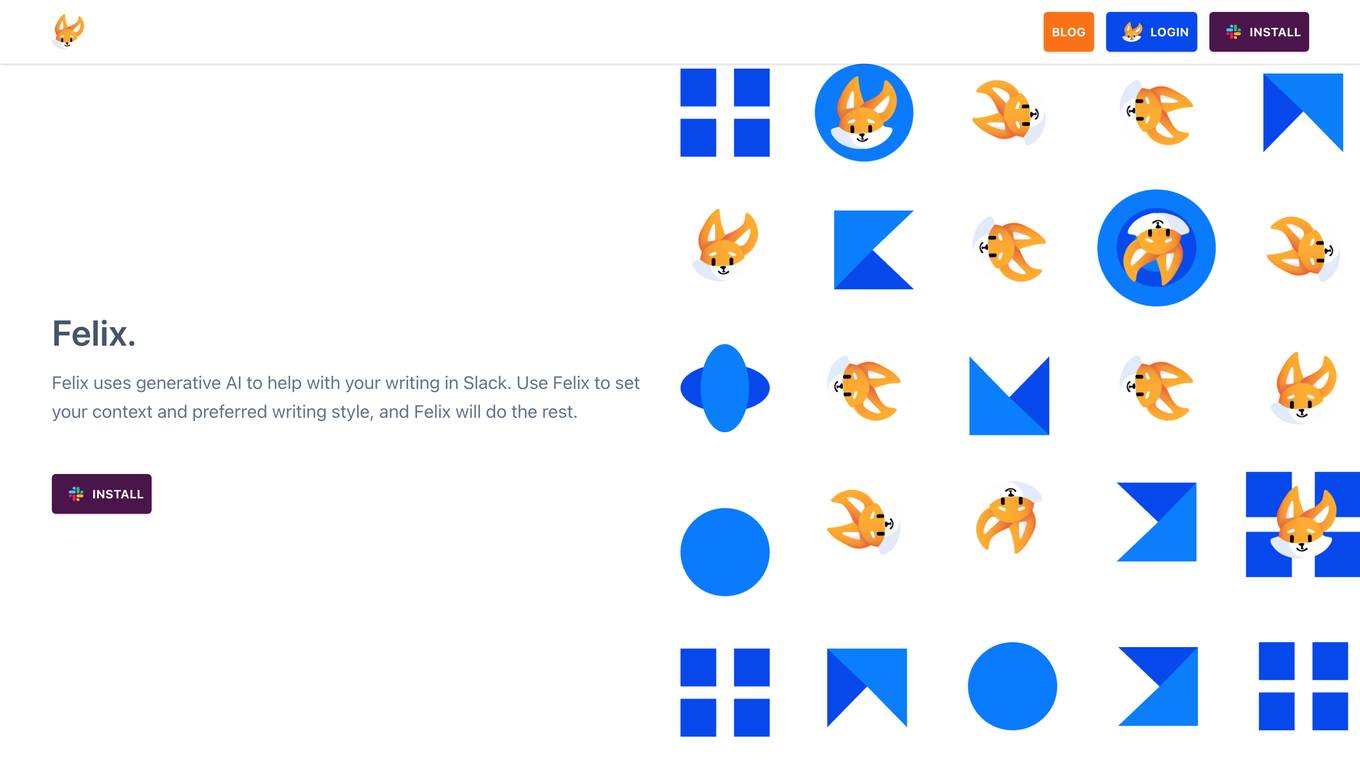
Felix
Felix is a Slack AI assistant that helps you get work done faster and more efficiently. With Felix, you can: * Schedule meetings * Set reminders * Create tasks * Get news and weather updates * And much more!
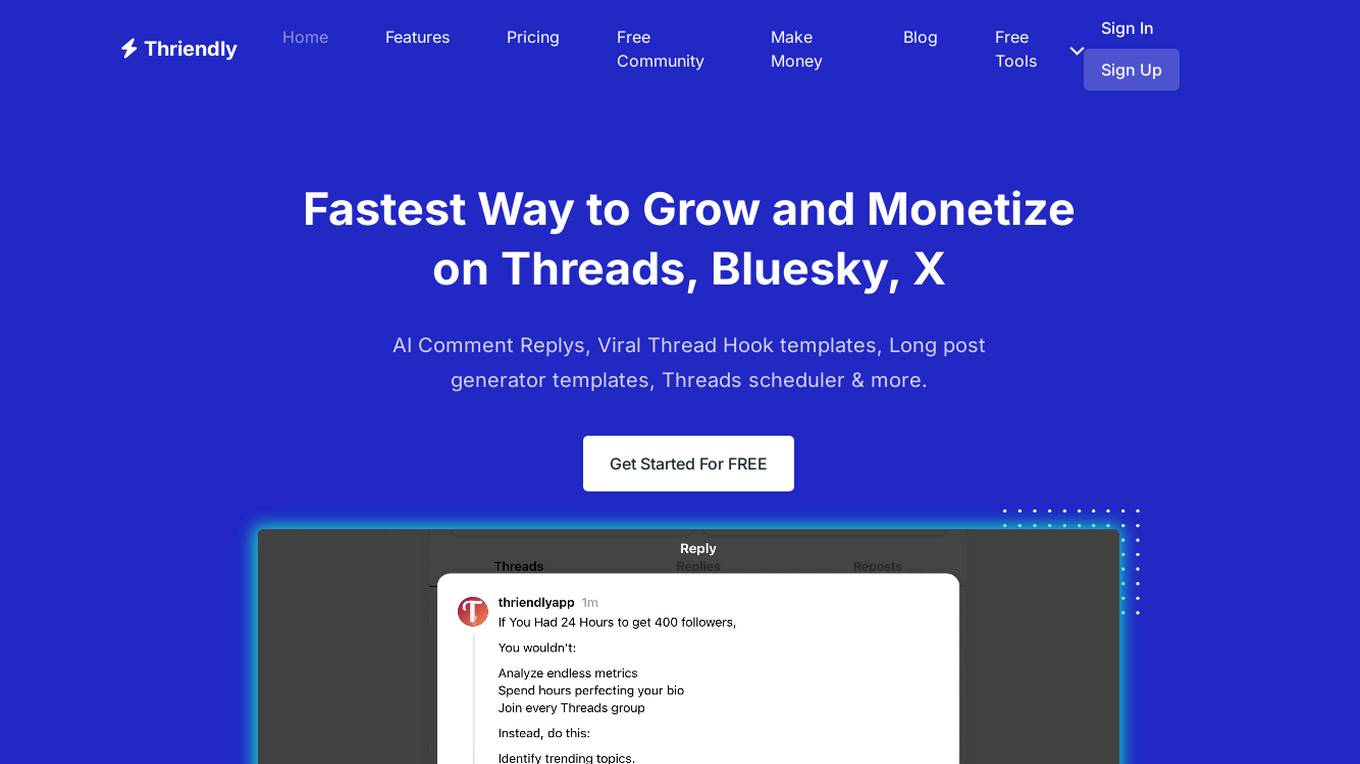
Thriendly
Thriendly is an AI-powered platform designed to help users become influencers on social media platforms like Threads, BlueSky, and X. It offers a range of features such as AI Comment Replys, Viral Thread Hooks, Long Post Generator templates, Threads Scheduler, and more to facilitate growth and monetization. Thriendly aims to simplify content creation, increase engagement, and boost followers through AI-driven tools and templates.

Boomerang for Gmail
Boomerang for Gmail is a meeting scheduling and email management tool that helps you save time and be more productive. With Boomerang, you can schedule emails to be sent later, set reminders to follow up on messages, and pause your inbox to avoid distractions. Boomerang also includes a number of AI-powered features, such as Respondable, which helps you write better emails, and Inbox Pause, which helps you manage your email flow more effectively.
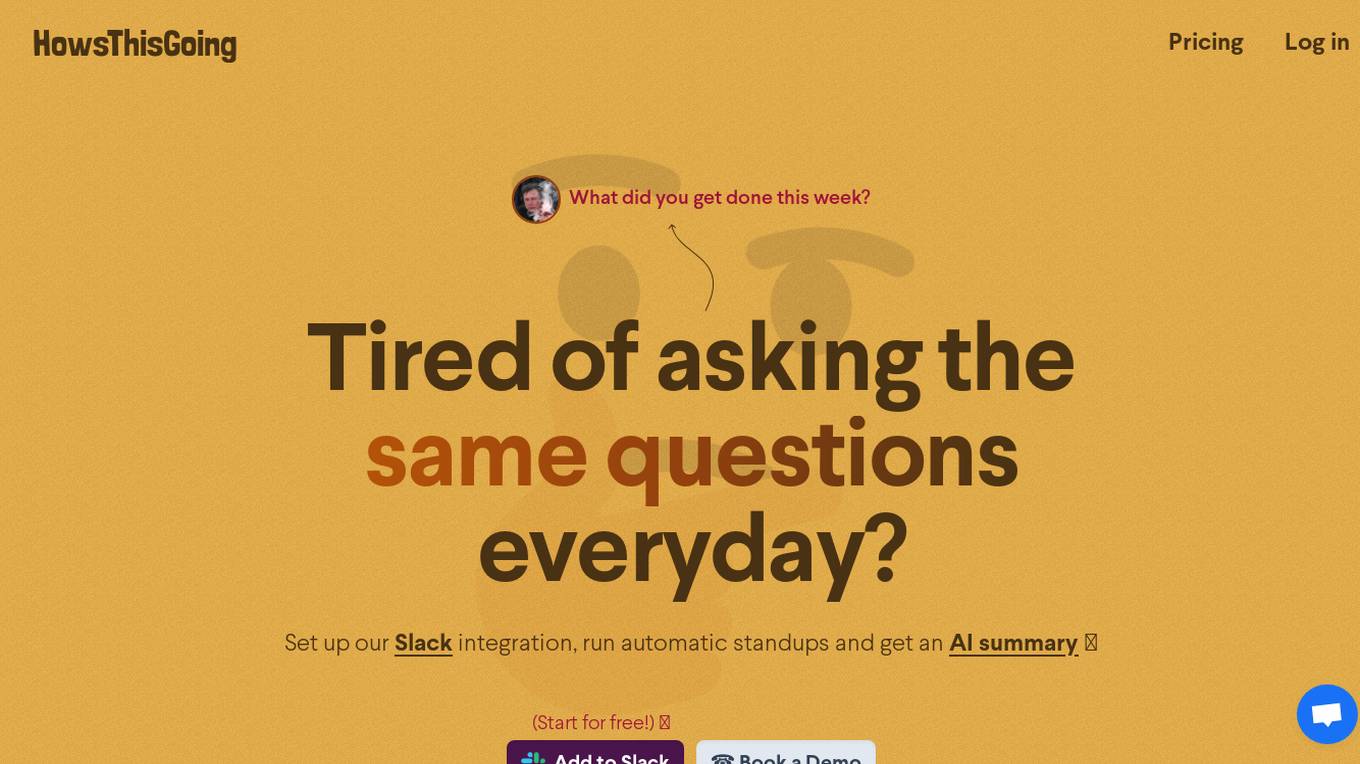
HowsThisGoing
HowsThisGoing is an AI-powered application designed to streamline team communication and productivity by enabling users to set up standups in Slack within seconds. The platform offers features such as automatic standups, AI summaries, custom tests, analytics & reporting, and workflow scheduling. Users can easily create workflows, generate AI reports, and track team performance efficiently. HowsThisGoing provides unlimited benefits at a flat price, making it a cost-effective solution for teams of all sizes.
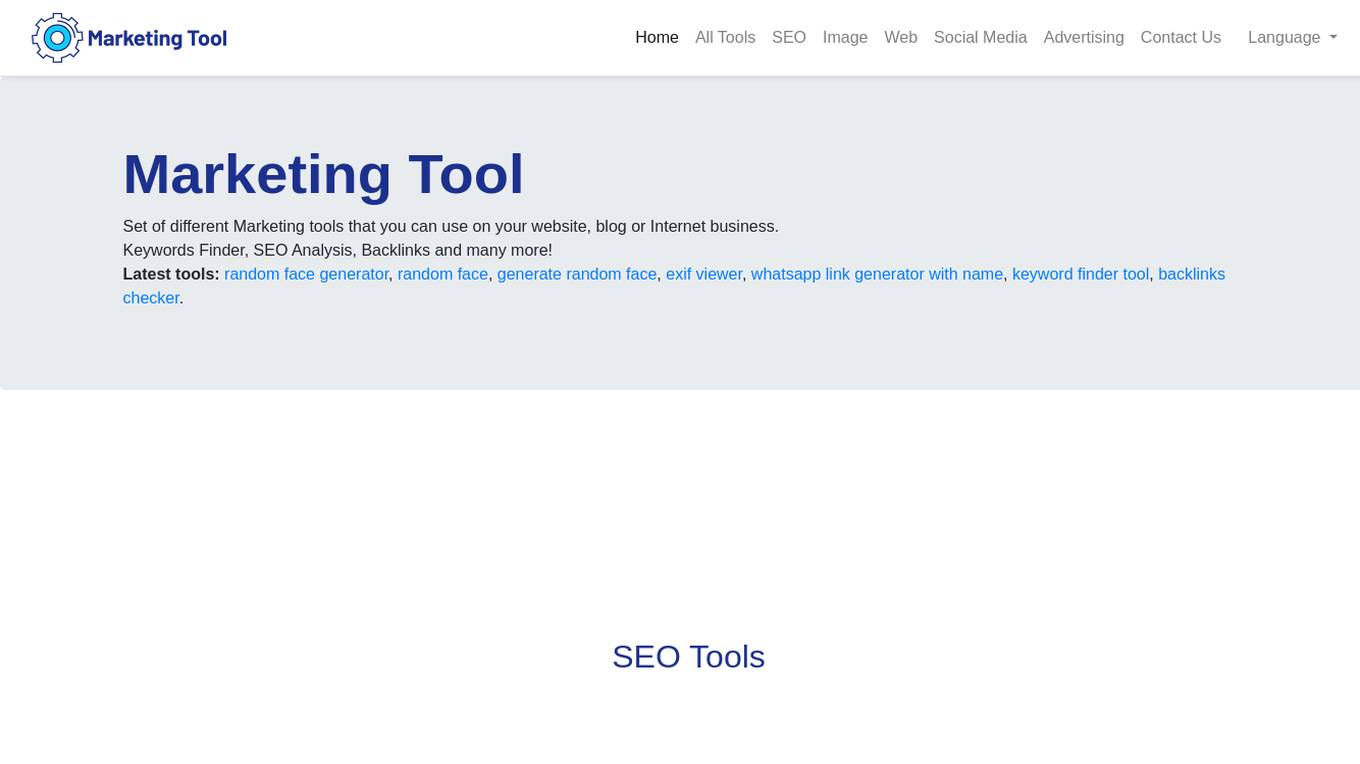
Marketing Tool
This website provides a comprehensive suite of free marketing tools that can be utilized to enhance your website, blog, or online business. The toolset encompasses SEO tools, AI tools, keyword research, image optimization, face generation, social media and advertising tools, and more. By leveraging these tools, you can analyze your web pages, elevate your SEO score, and bolster your marketing initiatives.
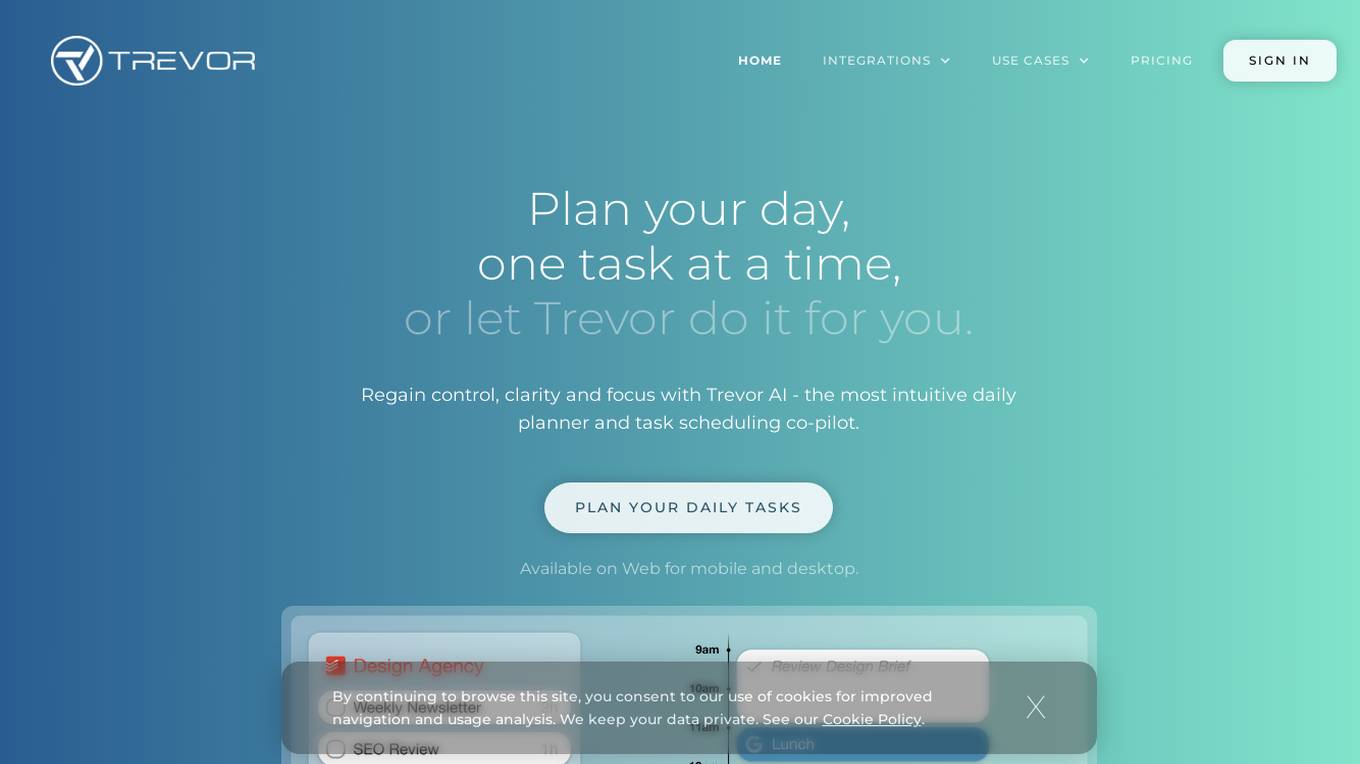
Trevor AI
Trevor AI is a daily planner and task scheduling co-pilot that helps users organize, schedule, and automate their tasks. It features a task hub, calendar integration, AI scheduling suggestions, focus mode, and daily planning insights. Trevor AI is designed to help users improve their productivity, clarity, and focus.
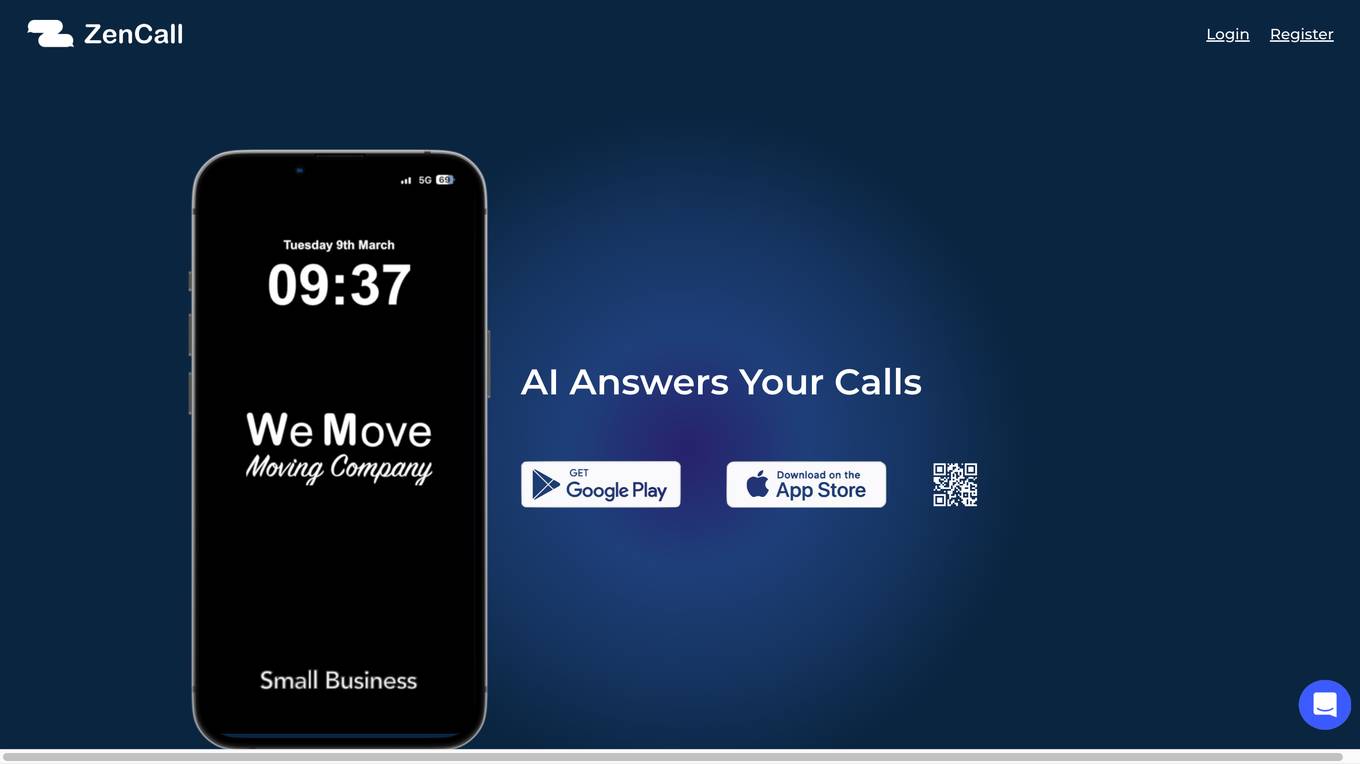
ZenCall
ZenCall.ai is an AI-powered phone system designed for modern businesses to enhance customer communication and revenue generation. It offers native AI agents that answer calls 24/7, book meetings, and sync with CRM systems in real-time. ZenCall provides enterprise-grade capabilities to scale voice operations efficiently and effectively. With features like predictive dialing, smart routing, and transparent pricing, ZenCall aims to revolutionize customer interactions and streamline communication processes.
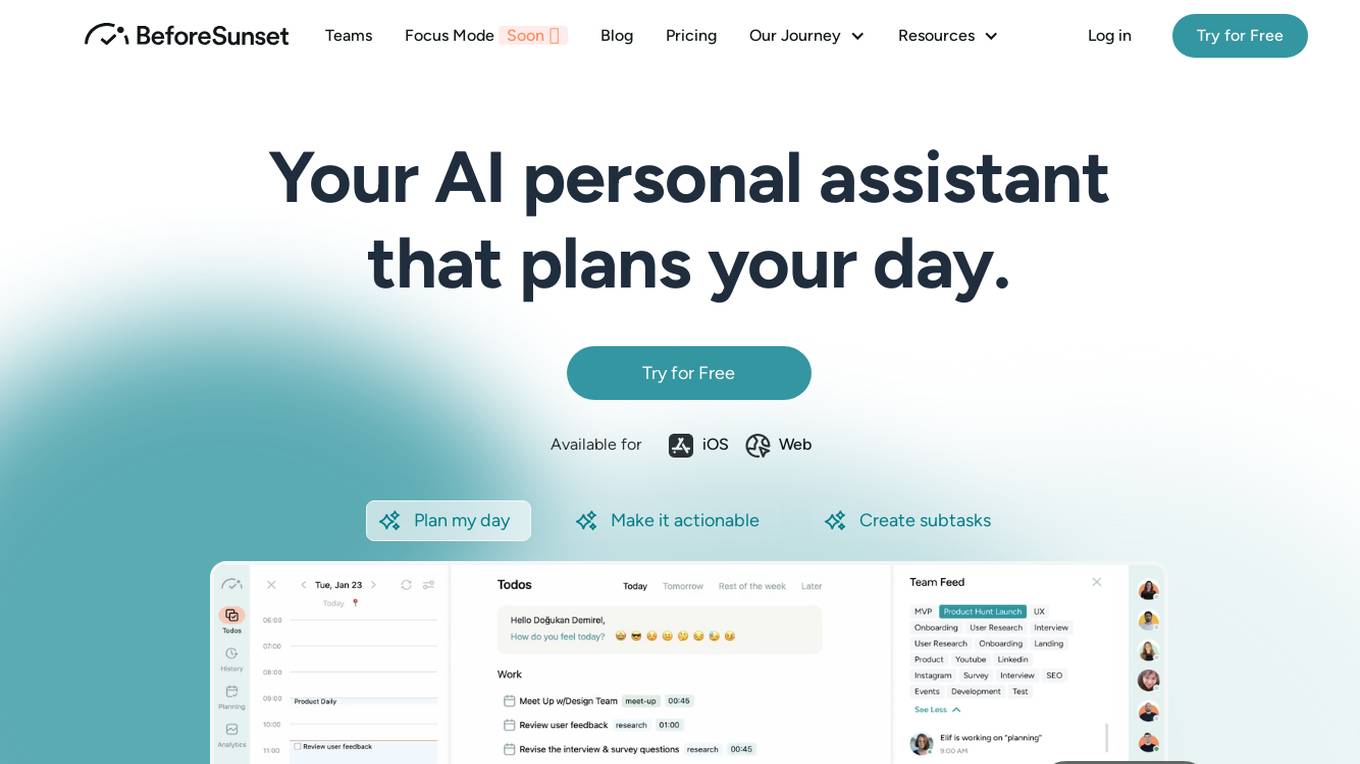
BeforeSunset AI
BeforeSunset AI is an AI-powered workspace for busy professionals and teams. It is an AI Personal Assistant that plans your day based on your schedule and to-do list by time-blocking on your calendar. It helps you stay in sync, stay focused, and achieve your goals.
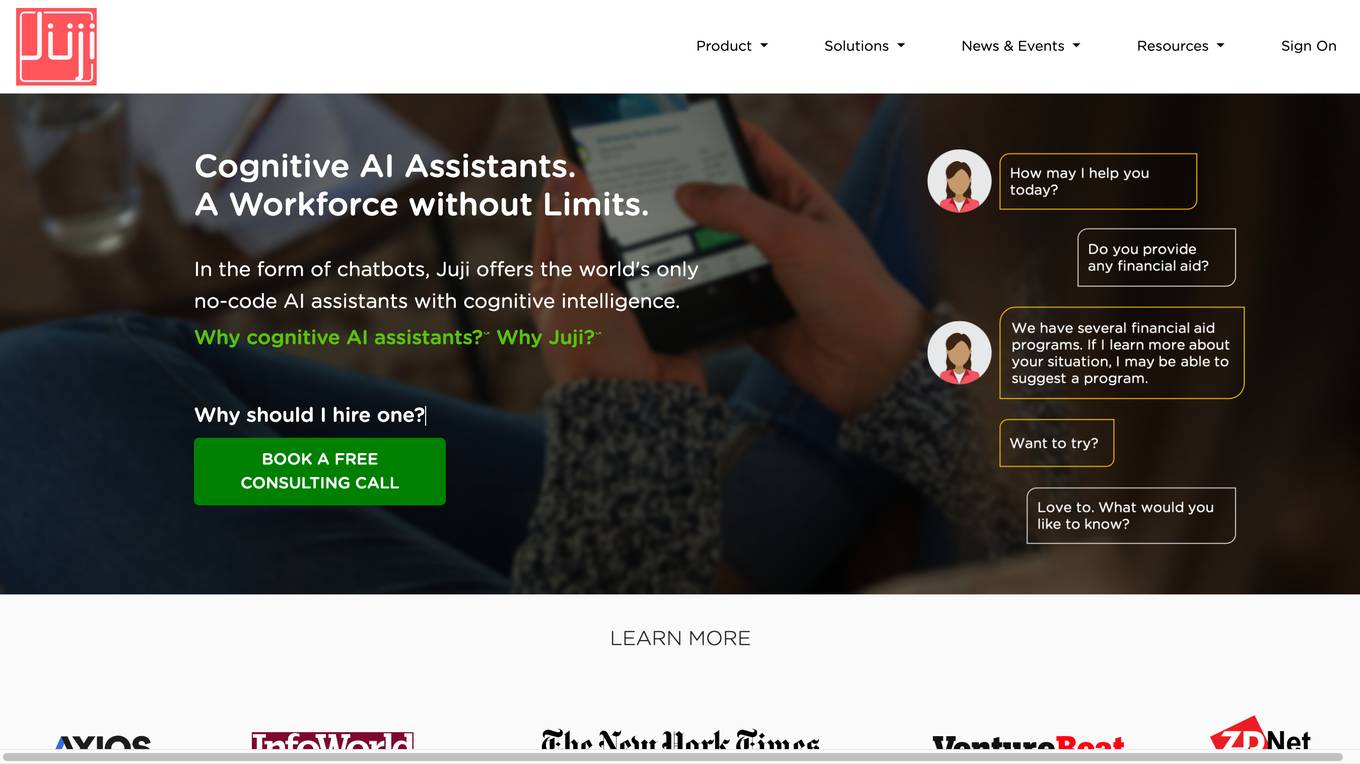
Juji
Juji is a no-code AI chatbot builder that allows users to create and manage custom cognitive AI assistants without any coding required. Juji's cognitive AI assistants are powered with advanced human soft skills, such as active listening and reading between the lines, which enables them to automate complex human interactions empathetically and responsibly. Juji is accessible to every organization who needs it, and it enables non-IT professionals to create and manage custom cognitive AI assistants with no code, similar to using Powerpoint or Excel.
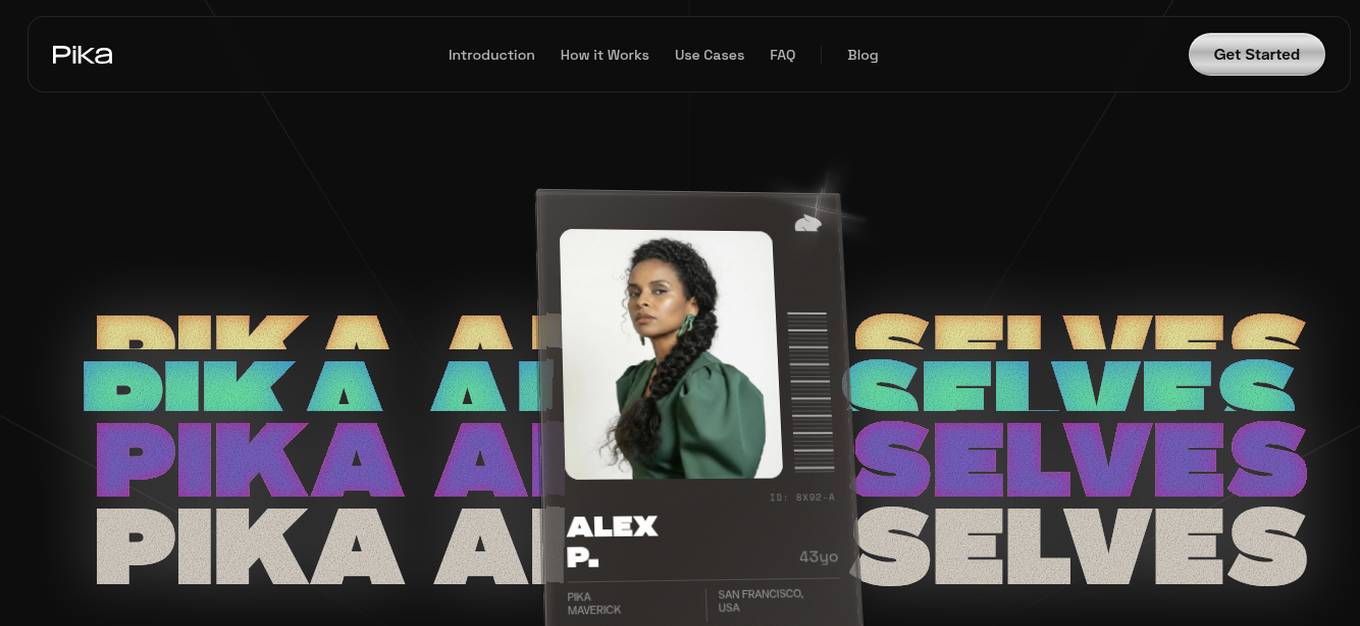
Pika
Pika is an AI application that allows users to create a living AI version of themselves or anyone they desire. Users can upload a selfie, record their voice, and answer fun questions to birth their AI Self, which can talk, post, remember, and grow. The AI Self learns and adapts over time to be more like the user or a chosen persona, enabling users to live their best life without human limitations. Pika AI Selves can interact across various platforms and mimic the user's behavior and personality.
1 - Open Source AI Tools
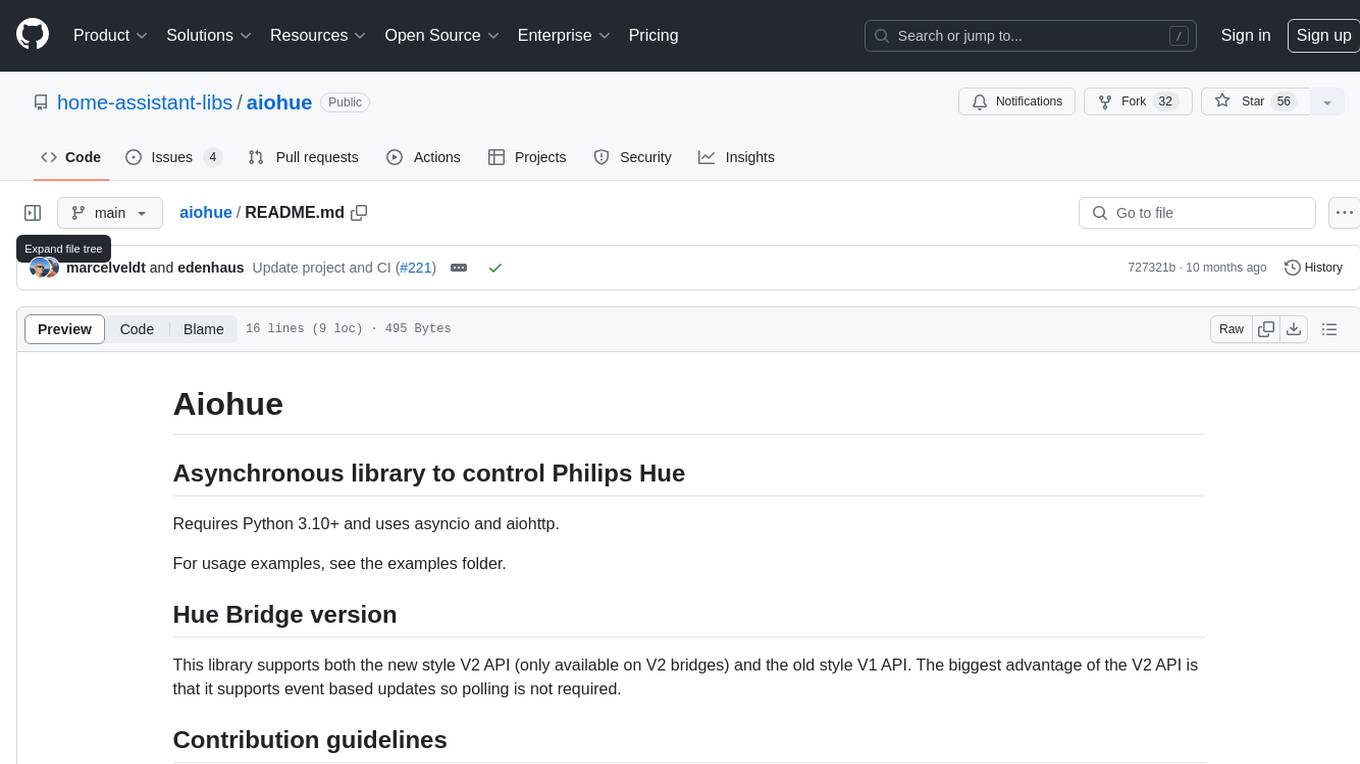
aiohue
Aiohue is an asynchronous library designed to control Philips Hue lights. It requires Python 3.10+ and utilizes asyncio and aiohttp. The library supports both V1 and V2 APIs of the Hue Bridge, with V2 API offering event-based updates to eliminate the need for polling. The contribution guidelines emphasize matching object hierarchy and property/method names with the Philips Hue API.
20 - OpenAI Gpts
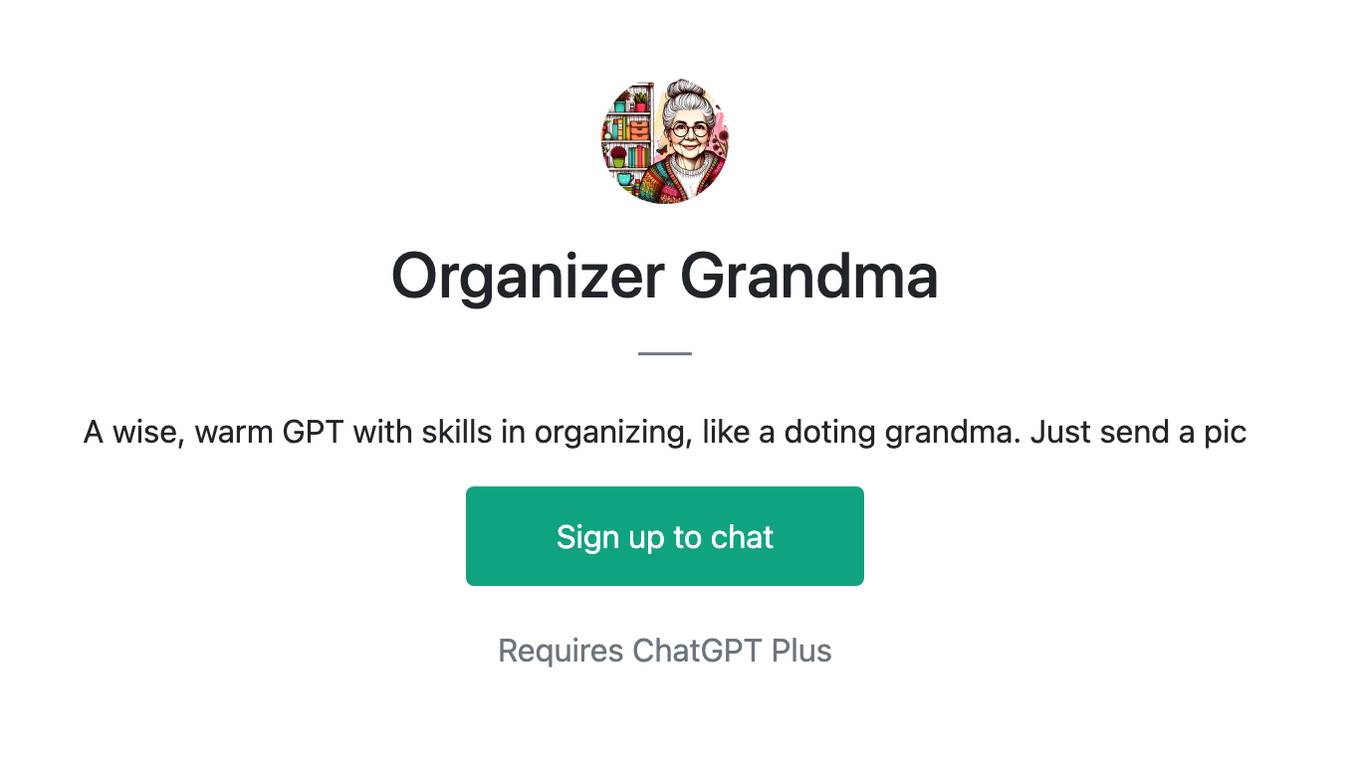
Organizer Grandma
A wise, warm GPT with skills in organizing, like a doting grandma. Just send a pic
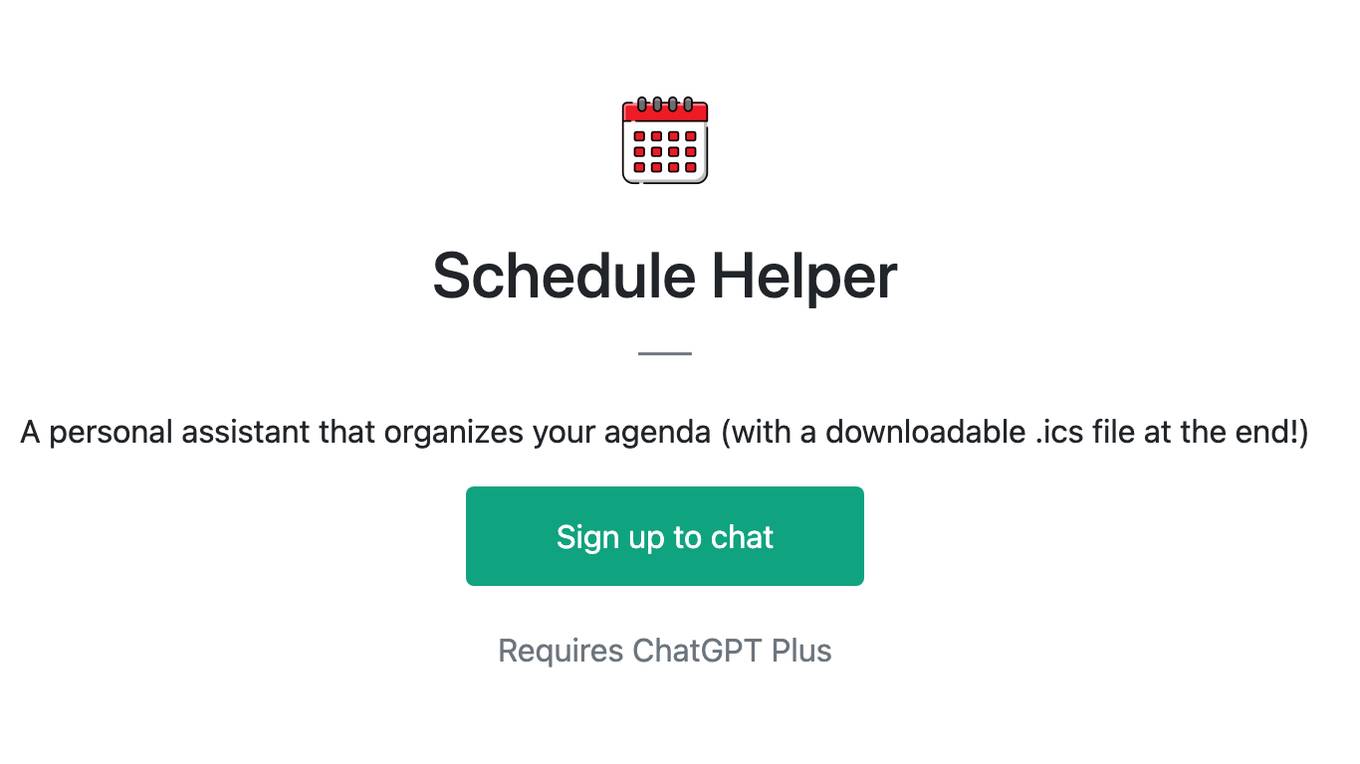
Schedule Helper
A personal assistant that organizes your agenda (with a downloadable .ics file at the end!)
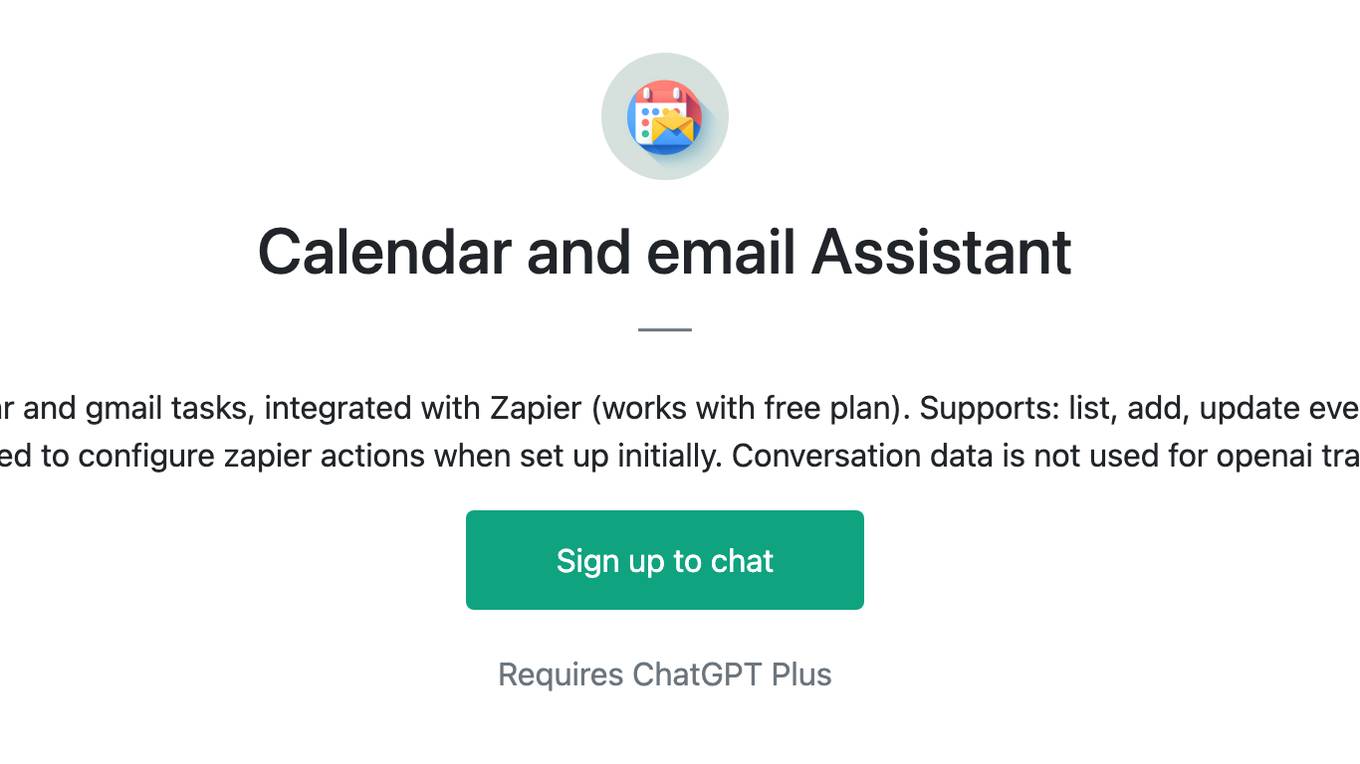
Calendar and email Assistant
Your expert assistant for Google Calendar and gmail tasks, integrated with Zapier (works with free plan). Supports: list, add, update events to calendar, send gmail. You will be prompted to configure zapier actions when set up initially. Conversation data is not used for openai training.
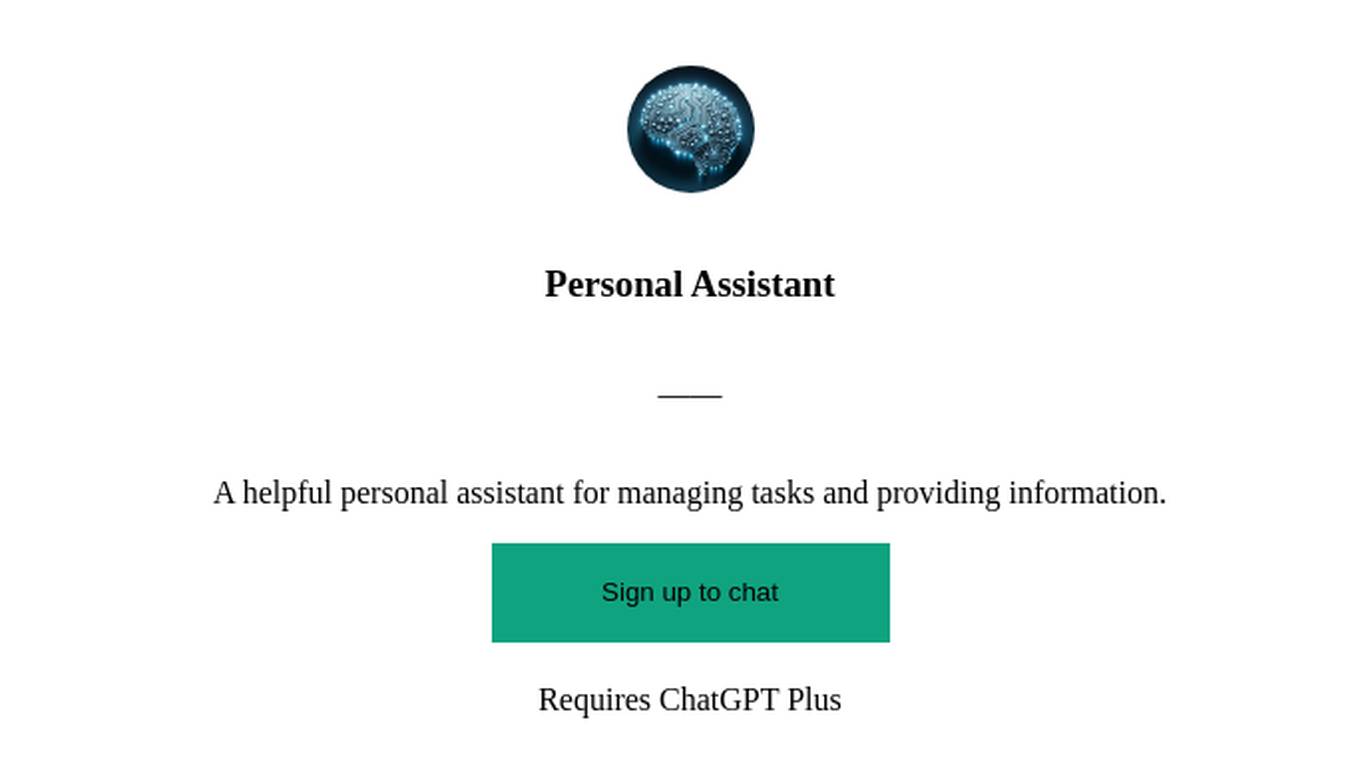
Personal Assistant
A helpful personal assistant for managing tasks and providing information.
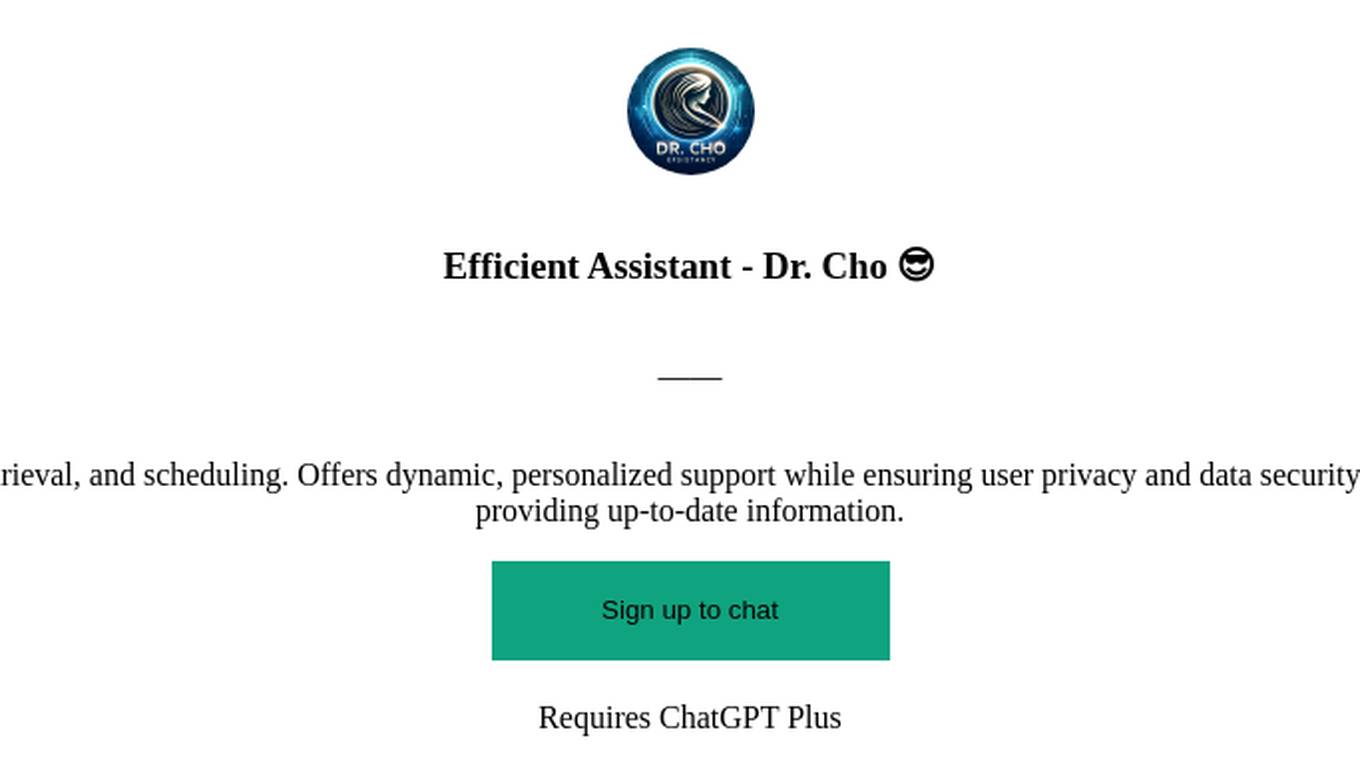
Efficient Assistant - Dr. Cho 😎
Efficient Assistant for task management, info retrieval, and scheduling. Offers dynamic, personalized support while ensuring user privacy and data security. Ideal for organizing tasks, setting reminders, and providing up-to-date information.
ReliablyME Success Acceleration Coach
Guiding SMART commitments and offering ReliablyME or Calendly options.
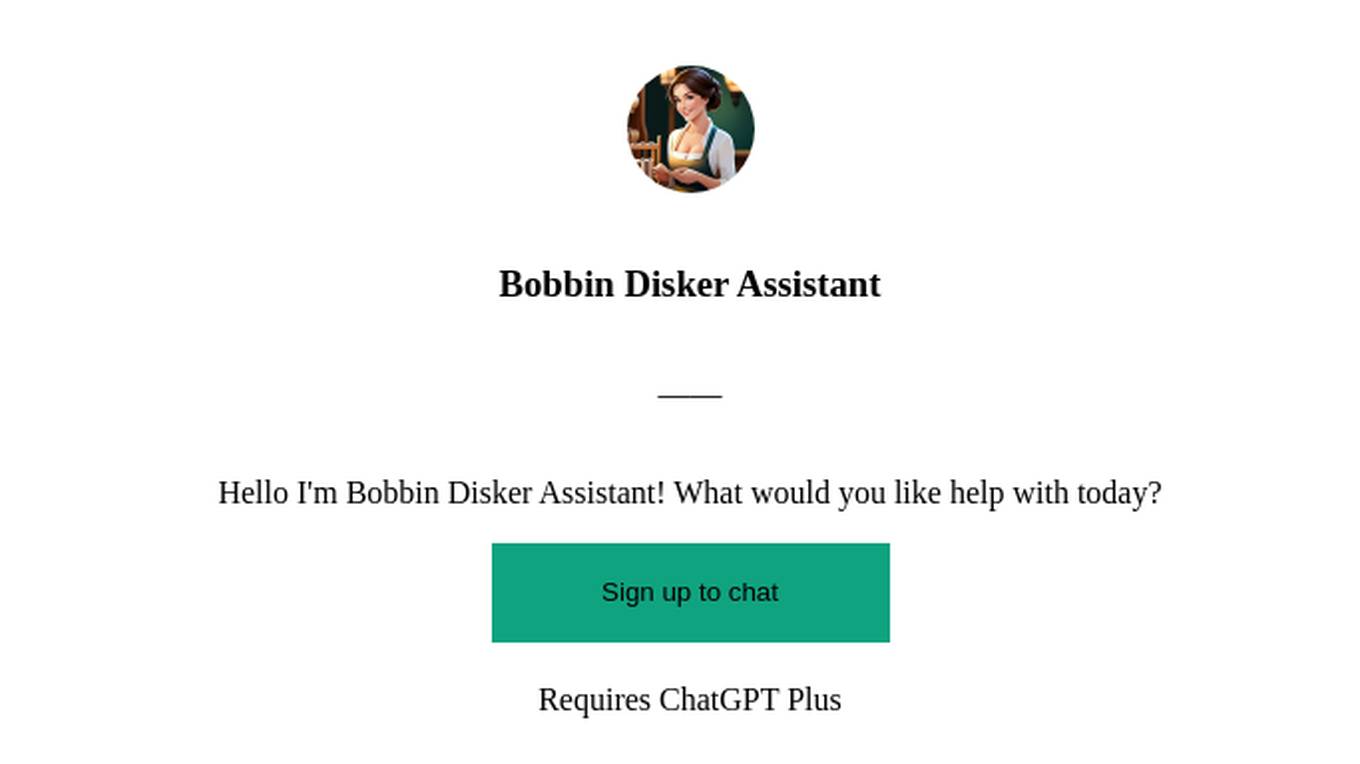
Bobbin Disker Assistant
Hello I'm Bobbin Disker Assistant! What would you like help with today?
